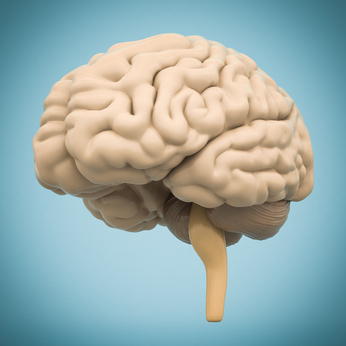

“Know Thy Brain”
Posted on June 5, 2016 by Dr. G
Brain health is increasingly becoming a concern for society. With an aging population and the incidence of Alzheimer’s expected to rise dramatically as well as an ever increasing assault on our nervous system by chemical exposures and artificial environments, those who choose to understand what makes a brain healthy will discover that a happy healthy brain means a happy healthy life in every way.
People with family history of Alzheimer’s, Parkinson’s, dementia, MS, etc. want to know what they can do to prevent degeneration and improve their chances of having optimal function of their brain. The truth is a healthy brain means healthy digestions, heart, blood pressure, and hormonal health – the list goes on and on. A healthy brain can even protect your joints, prevent arthritis, prevent injury, and improve athletic performance.
Knowing your normal and how to identify areas that can and should improve is now possible. The research and technology is getting better and better. Here are the topics I believe the average person needs to understand. These concepts are associated with the immune system and fuel delivery and brain activation.
- Immune system: What causes inflammation in our bodies and how does that impact the brain? Inflammation is a byproduct of immune function. Improving immune health improves brain health. What is the role of food sensitivities, chemical sensitivities, and common exposure or lack of exposure to pathogens (viruses, bacteria, parasites etc.) ?
- Fuel: The role of blood sugar and brain, especially as it relates to the hormones that keep our blood sugar under control, like insulin and cortisol. The absence of diabetes and pre-diabetes does not mean that these hormones are not having a detrimental effect on our brain. What impacts oxygen delivery to the brain? The brain is 2% of your body weight and can use in excess of ⅓ of your oxygen.
- Activation. Oxygen and glucose represent what we need to know about fueling the brain. In addition to fuel, we need to know what activates the brain and how that can be negatively impacted in a modern world. If you don’t use it, you lose it.
A modern world, computers, smart phones, television, etc. guarantees we drive certain brain pathways more while we neglect others. Neglected brain tissue will result in atrophy of related areas. All brain regions are connected and depend on the activity of other brain regions.
For example, while sitting here at my laptop, I am activating the part of my cerebellum that is involved in using my fingers on the keyboard, accuracy, timing, pressure, etc. That is the lateral most portion of the cerebellum. However, I am neglecting the the central or mid-line portion of this very important part of the brain. The mid-line cerebellum is extremely important in driving focus, attention, executive function, etc. The mid-line cerebellum actually will help to decrease anxiety, depression, and attention. Neglecting this part of the brain is all too common.
We now have the ability to measure subtleties of function and determine your starting point and compare you to yourself at a later date (establishing a baseline) or comparison to others. Sometimes comparing yourself to the general population is not a great idea since most people are not functioning very well to begin with. We can use:
- Inexpensive lab and blood tests that give us extremely important information about fuel delivery and immune health.
- Brain function tests that are cheap and sensitive as they are related to pathways associated with the cerebellum, vestibular system, eye tracking, primitive reflexes, posture, tone, and joint/muscle control.
- Training methods that can improve almost all measured systems.
- Nutritional and dietary recommendations that dramatically impact the immune system and inflammation in a measurable way. We also understand how different fuels are used by the brain, how, and when they are best used.
The doctors we turn to when we have brain symptoms have traditionally been neurologists. Neurologists go to school for many many years to study the nervous system and be able to diagnose some of the most challenging health conditions known to modern man. A neurologist is trained to identify diseases like Alzheimer’s, Parkinson’s, ALS, MS, CTE, benign and malignant tumors, etc. The problem is that once you have identified these conditions, even in their earliest stages, the disease process is unfortunately pretty advanced. For example the earliest detection of Parkinson’s disease means that 75% of the neurons impacted by the disease are gone.
We need to act sooner so that we are not dependent on medications and neurologists. The fact is they can only do so much and you do not want to be in a situation where your only choice is a medication, that at best will help with some symptoms while creating new ones. I am not a pessimist, I am a realist. We must recognize that it’s never too early to improve your brain health. Those with Parkinson’s and Alzheimer’s are “waiting for a cure”. I don’t want to ever be in a situation where I am waiting for a cure.
Thanks for reading!





